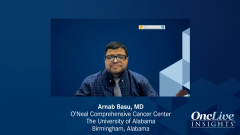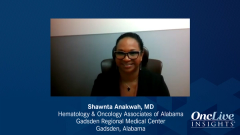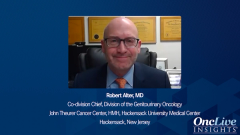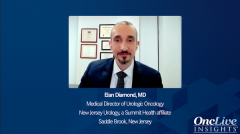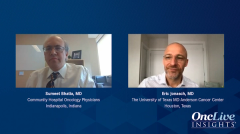
Advanced RCC Patient Referrals from Community Oncologists
Elan Diamond, MD, describes when and how often community oncologists refer patients with suspected advanced renal cell carcinoma to his practice.
Episodes in this series

Robert Alter, MD: You’re in a hub that’s a major referral center. You receive patients from urologists, which is extraordinary. Are community oncologists referring patients to you? Do they feel as if they know what’s going on, and there’s enough going on through NCCN [National Comprehensive Cancer Network], that they have a sense that they can take care of this? Or do they still realize the value of an expert like yourself who sees this and can treat these patients better?
Elan Diamond, MD: Community oncologists do refer patients, and we co-manage patients very often. I’m fairly impressed with the penetration in the community that the data regarding these combination therapies have had. But these are very challenging regimens. The best way to know how to manage these, especially immune-related toxicities, is by experience. When you see these patients and toxicities over and over again, you develop a facile way of managing them. That’s very important. That would be an indication—especially if you have fairly limited experience—to refer patients [to], or at least for co-management with, an academic center or an organization like ours, New Jersey Urology.
The other important thing is to refer patients for clinical trials because there’s a major unmet need in renal cell carcinoma, especially in the second-line setting, as Dr Alter alluded to. We have a plethora of wonderful first-line therapies. But when we come to the second line, we don’t have a good sense of what to do. Cabozantinib in the METEOR trial [NCT01865747] has been effective. At ASCO GU [American Society of Clinical Oncology Genitourinary Cancers Symposium] this year, there was a real-world study of cabozantinib post I/O [immuno-oncology]–I/O or post I/O–TKI [tyrosine kinase inhibitor] called CABOSEQ, which should show reasonable response rates. But these need to be evaluated in prospective randomized phase 3 clinical trials, and the only way we can do that is if we have patients for it.
We also need to answer the questions that Dr Alter posed. What do you do after adjuvant pembrolizumab? What’s the ideal adjuvant therapy? If you have patients with renal cell carcinoma, I strongly urge you to refer them for appropriate clinical trials.
Robert Alter, MD: Right. Speaking of which, our next dilemma isn’t going to be which combination therapy we should put our patients on. When they present the COSMIC-313 [NCT03937219] data, which is probably going to be presented at ESMO [European Society for Medical Oncology Congress], the question will be: What do you do with triple therapy?
You’re treating patients with ipilimumab-nivolumab and cabozantinib as a first-line therapy. I don’t have any inside track [but] I suspect it’s going to be impressive data, taking 2 significant active regimens and combining them. They’re asking the next question. When you take belzutifan, which we see is going to be active in second line, what happens when you combine it with first-line therapy? There’s an ongoing study looking at lenvatinib-pembrolizumab with belzutifan or quavonlimab, which is a CTLA-4 inhibitor, and then vs lenvatinib-pembrolizumab. We now have more ingredients to play with and we’re going to ask the next question, so we’re probably going to have 3 drugs up front as therapy. What do we use as second-line therapy? What happens when you need to take 4 drugs years later?
It’s great for patients. You have to be able to recognize it’s about the tolerability of the regimen. You have to still think the way we did archaically 5 years ago. It’s about sequencing therapy. You can’t get more excited about using as many drugs [as possible]. It’s not about that first mile. It’s about the duration of the patient’s therapy.
Transcript edited for clarity.


